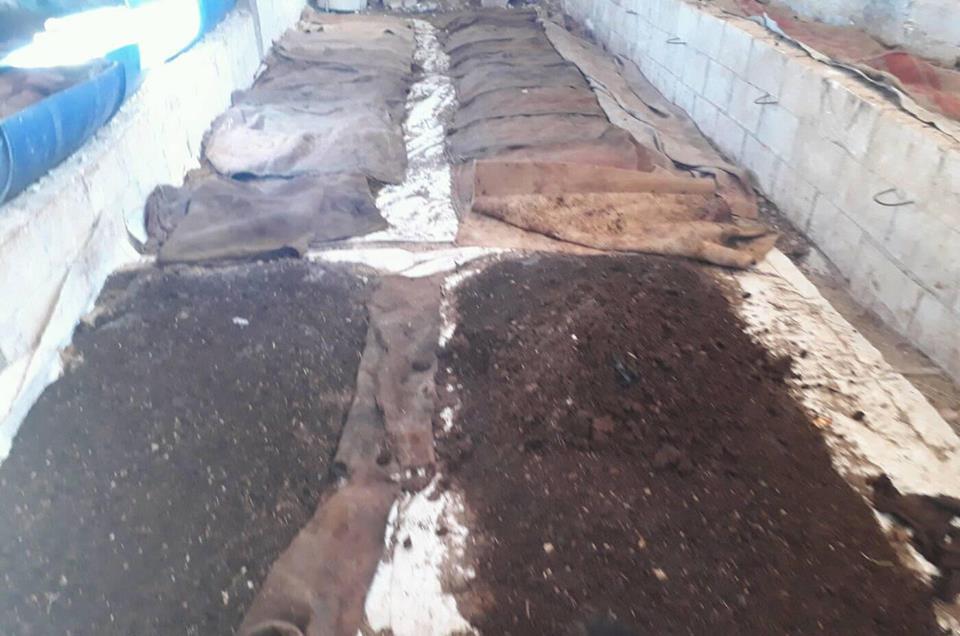Despite all the difficulties his project had faced for a year, Riadh Abu Adel Al Sawadi has continued his unique experiment in the production of earthworm compost in his town in northern Idlib province.
His experiment began in China, where he lived for five years, returning to his town, Hish, in south of Idlib, accompanied by Chinese ideas and experiences, most notably, the production of organic fertilizers from earthworms.
Al Sawadi talked about the details of his project to Eqtisad*, pointing out that this fertilizer is produced by raising the red wiggler in its own farm, under appropriate conditions. These worms convert organic household waste into “Dubal” (organic fertilizer) rich in materials useful for farming, as it can convert organic waste into chemicals-free fertilizer.

“I started this project more than a year ago, and it is the first of its kind in Syria, after I replicated the idea from China,” he says. “This experiment is not innovative. It is an old one outside of Syria, which I have learned during my stay in China, and I now convey it to my country because of its importance and usefulness.”
He has brought the worms at 25 SP per worm and set up a special room for them to complete his farm.
As for the benefits of compost, Al Sawadi said, “One of the most important features is that it increases the production rate to more than forty percent. The fruits are healthy and free from disease. It maintains soil irrigation, improves its quality, provides beneficial and necessary bacteria and reduces plant disease such as root rot.”
As for the percentage of production in his project, Al Sawadi pointed out that each kilogram of worms contains about 2500 worms, which feed on household waste and animal dung, and produces half of its weight in organic fertilizer. One kilo produces half a kilo of fertilizer a day. That is to say, every 80kg of worms produces 1 ton of organic fertilize per month, in addition to increasing production twice every two months due to the increasing number of worms after breeding, as they lay eggs once a week.
“We distribute one ton at around 200 thousand Syrian pounds ($ 400) as a motivating price to the farmer, while the real price is much higher in other countries. India is the largest producer of this compost, after it comes Turkey and then European countries. The price of a ton can reach over $700 in Turkey and more than $1000 in Europe.”
Organic manure extracted from red worms is called “black gold” in some European countries due to its valuable properties.
Al Sawadi’s experiment serves the needs of farmers in Syrian’s liberated northern areas for organic manure, in light of the scarcity of markets with chemical fertilizers, high prices and low quality.
EQTSAD
















Comments About This Article
Please fill the fields below.